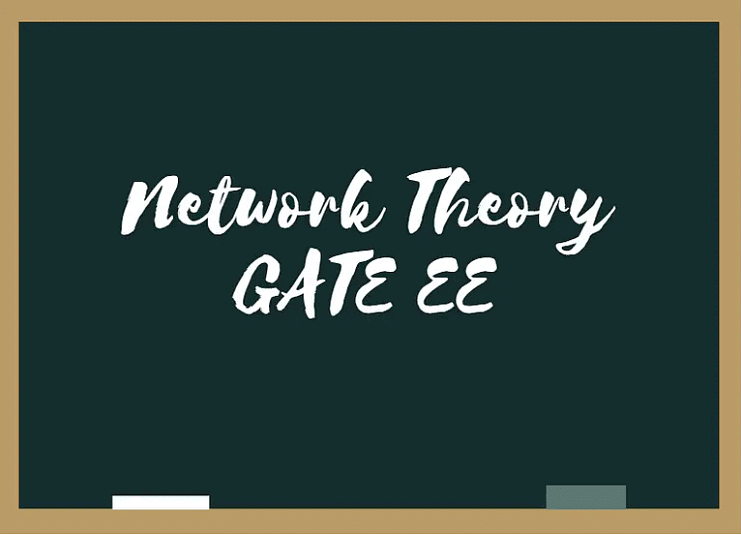Syllabus: Network Theory (Electric Circuits) GATE EE - Electrical Engineering (EE) PDF Download
Network theory is the study of solving the problems of electric circuits or electric networks. It is the most important subject for any Electrical Engineering or Electronics & Communication Aspirants. At the same time, it’s a prerequisite for other important subjects such as Analog Electronics, Electrical Machines, Power Systems, etc.
The problems are not so tricky in this subject and it becomes one of the better scoring topics in the GATE examination. It’s advisable you should avoid mistakes, learn every topic carefully as it will majorly impact your GATE score. The weightage of Network Analysis will mostly be anywhere between 8 to 12 marks in the GATE 2023 for both the streams i.e. EE and ECE.
In this document, we will discuss the syllabus for Network Theory in detail and also providing the entire content through which you can start and strengthen your preparation.
In this document, we will discuss the syllabus for Network Theory in detail and also providing the entire content through which you can start and strengthen your preparation.

1. Basics of Electric Circuits & Basic Laws
- Charge and Current
- Voltage
- Power and energy
- Circuit Elements
- Ohm's Law
- Nodes, Paths, Loops and Branches
- Kirchhoff's Current Law (KCL)
- Kirchhoff's Voltage Law (KVL)
- Series Resistances and Voltage division
- Parallel Resistances and Current division
- Wye - Delta Transformation
- Linearity Property and Superposition theorem
- Source Transformation
- Thevenin's Theorem
- Norton's Theorem
- Maximum Power transfer theorem
- Nodal Analysis
- Nodal analysis wit voltage source
- Mesh analysis
- Mesh analysis with current source
- Nodal and Mesh analysis by Inspection
3. AC Analysis
4. Transient Analysis in AC & DC Circuits
- Analysis of First order Differential Equation
- Laplace transform
- Circuit Elements in s-domain
- Concept of Time Constant in RL Circuit
- Impulse & Step Response of Series RL Network
- Transient & Steady State Behavior of Capacitor
5. Sinusoidal Steady State Analysis
- Sinusoids
- Phasors
- Phasor Relationship for Circuit Elements
- Kirchhoff's law in frequency domian
- Circuit analysis in phasor domain
- Phasor Diagrams
6. Resonance
- Series RLC Resonance Circuit
- Paraller RLC Resonance Circuit
- Quality Factor
- Maximum Voltage Across R, L & C
- Complex power
7. Magnetically Coupled Circuits
- Self Inductance
- Mutual Inductance
- Energy in a Coupled Circuit
- Linear and Ideal Transformers
- Impedance Parameters
- Admittance Parameters
- Hybrid Parameters
- Transmission Parameters
- Relationships between Parameters
- Interconnection of Networks
9. Graph Theory
- Network Graph
- Tree & Complementary Tree
- Incidence & Reduced Incedence Matrix
- Tie-Set & Cut Set Matrix
FAQs on Syllabus: Network Theory (Electric Circuits) GATE EE - Electrical Engineering (EE)
| 1. What is network theory in the context of electric circuits? |  |
| 2. What is the significance of network theory in electrical engineering? |  |
| 3. What are some common techniques used in network theory for circuit analysis? |  |
| 4. How does network theory relate to the GATE EE exam in electrical engineering? |  |
| 5. Can you provide some tips to prepare for the network theory section of the GATE EE exam? |  |



















